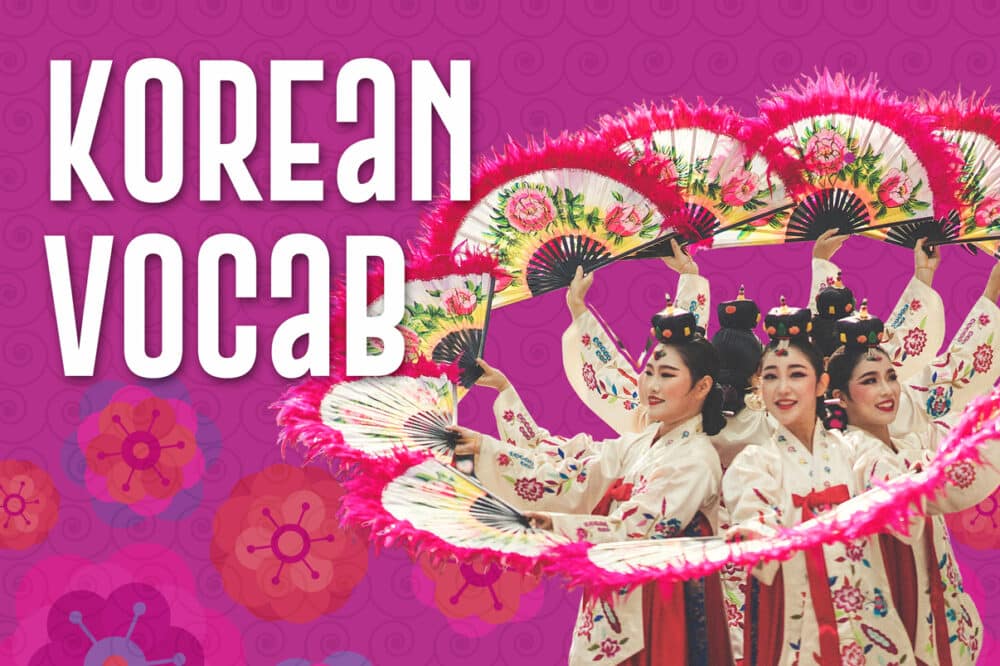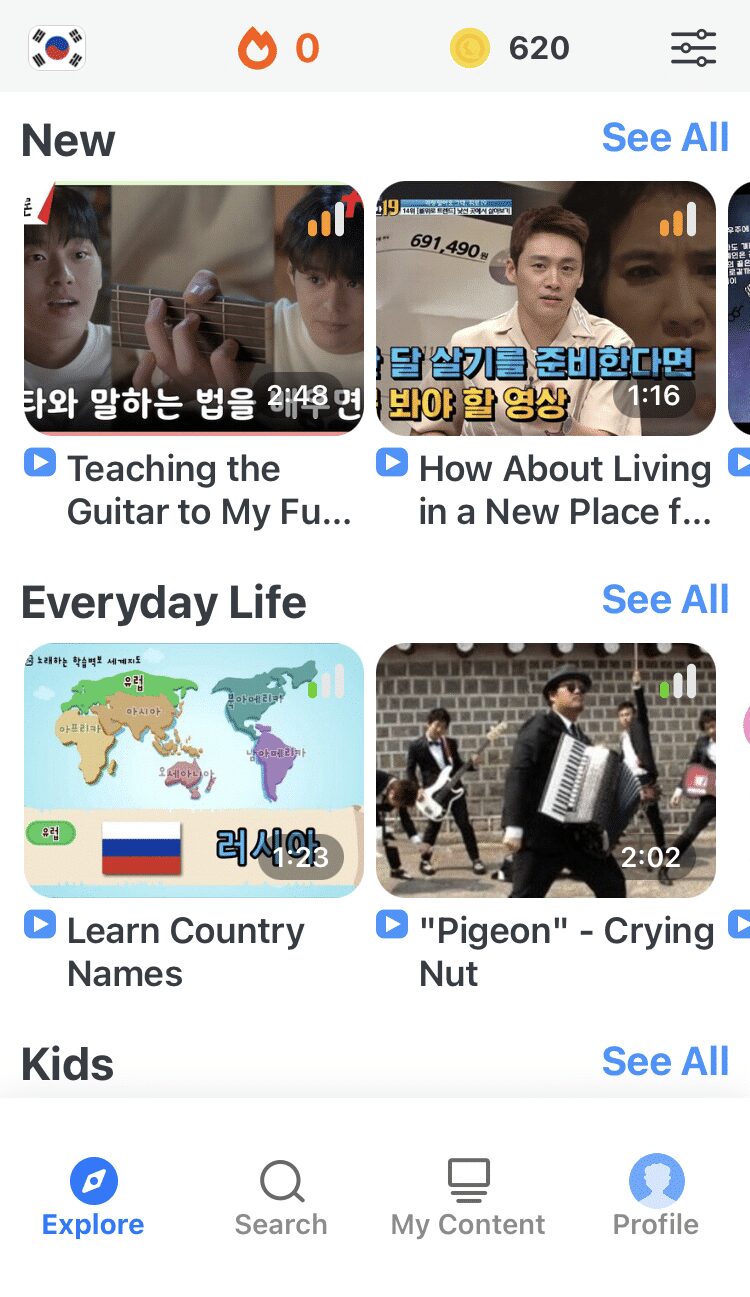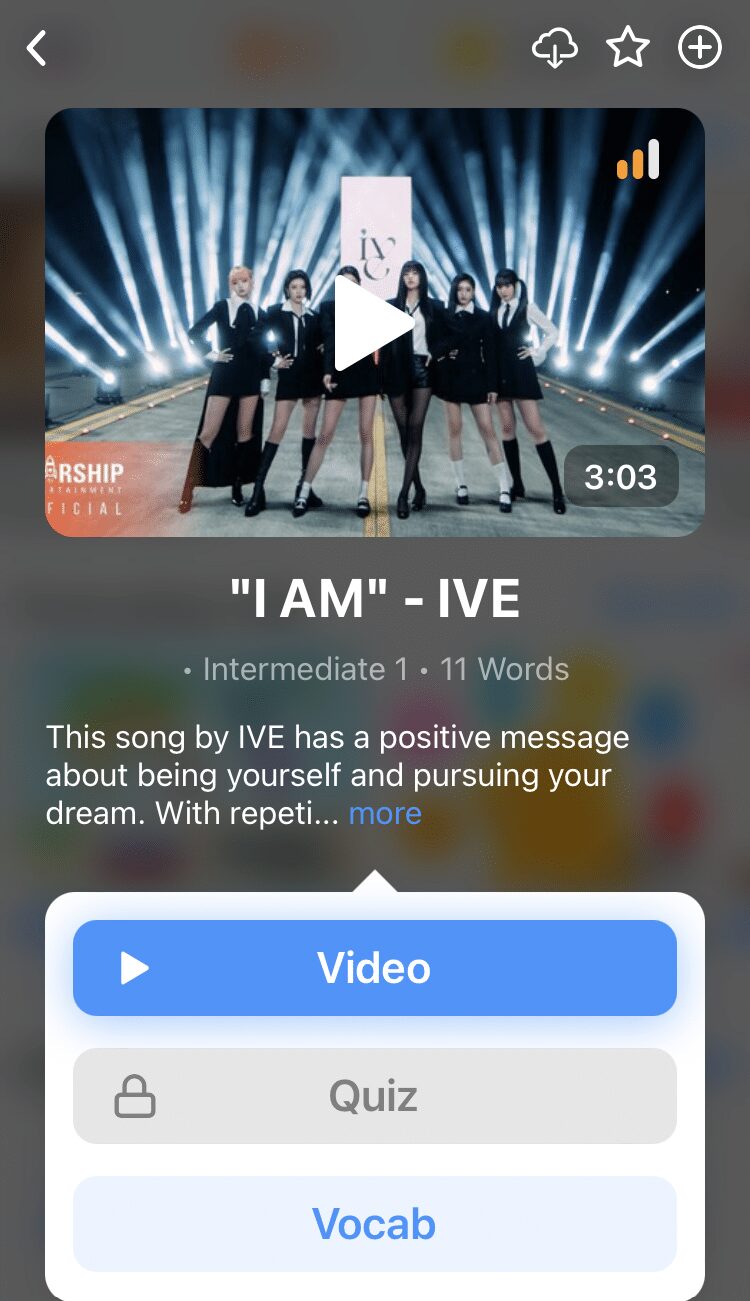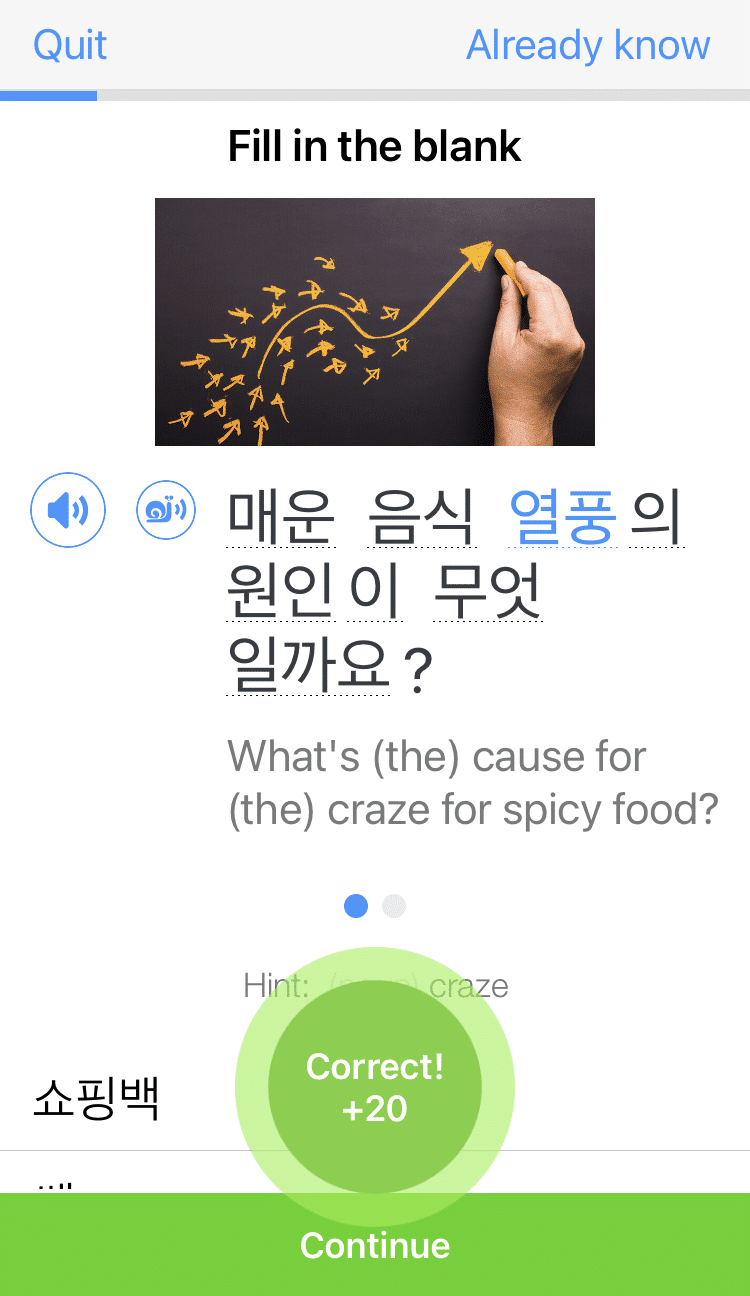150 Core Korean Nouns Every Learner Should Know

Need to start filling up your Korean vocabulary bank? This list contains 150 must-know nouns from the language that’ll serve as a great foundation for the rest of your studies.
While 150 might sound like a lot, you’ll probably notice patterns between words that can make memorization easier. Plus, there are plenty of words that are just Korean transliterations of English words.
Download: This blog post is available as a convenient and portable PDF that you can take anywhere. Click here to get a copy. (Download)
People
There are over 50 million people living in Korea today. A big population for a relatively small country, and all the more reason you should learn the nouns associated with people.
Knowing these nouns will get you by in a lot of social situations that require identification.
| Korean | English | Romanization |
|---|---|---|
| 남자 | man | nam-ja |
| 여자 | woman | yuh-ja |
| 소년 | boy | so-nyun |
| 소녀 | girl | so-nyuh |
| 친구 | friend | chin-gu |
| 아기 | baby | ah-gi |
| 어린이 | child | uh-ri-nii |
| 십대 | teen | ship-dae |
| 어른 | adult | uh-reun |
| 아줌마 / 아주머니 | middle-aged woman | ah-joom-ma / ah-joo-muh-ni |
| 아저씨 | middle-aged man | ah-juh-ssi |
| 노인 / 어르신 | elderly person | no-iin / uh-reu-shin |
| 대선배 / 선배 | senior | dae-sun-bae / sun-bae |
| 후배 | junior | hu-bae |
| 고객 | customer / client | go-gaek |
| 낯선 사람 | stranger | nat-sun sa-ram |
| 관계 | relationship | gwan-geh |
Family
Family is a big deal in Korean culture. The close bonds between family members are seen as hallmarks of societal success.
There are a lot of special names and titles for Korean family members, and I’ll be the first to admit that memorizing all of them can be difficult.
The titles can differ depending on which side of the family a person comes from, and whether or not they’re older or younger than you or someone else.
That said, knowing at least these nouns will definitely get you some brownie points with the fam!
| Korean | English | Romanization |
|---|---|---|
| 가족 | family | ga-jok |
| 아이들 | children | ah-ii-deul |
| 아들 | son | ah-deul |
| 딸 | daughter | ddal |
| 형제 | brothers / siblings | hyung-jeh |
| 자매 | sisters | ja-meh |
| 부모님 | parents | bu-mo |
| 어머니 | mother | uh-muh-nii |
| 아버지 | father | ah-buh-ji |
| 남편 | husband | nam-pyun |
| 아내 | wife | ah-nae |
| 조부모님 | grandparents | jo-bu-mo |
| 사촌 | cousin | sa-chon |
| 손주 | grandchild | son-ju |
Professions
These are helpful nouns to know if you’re interested in learning about (or joining) the Korean workforce.
Korea is a popular hub for international employees, so it’s definitely an option to consider if you’re looking to work abroad.
| Korean | English | Romanization |
|---|---|---|
| 직업 | career | jih-geop |
| 일 | work | il |
| 학생 | student | hak-seng |
| 선생님 | teacher | sun-saeng-nim |
| 의사 | doctor | ui-sa |
| 간호사 | nurse | gahn-ho-sa |
| 요리사 | chef | yo-rii-sa |
| 변호사 | lawyer | byun-ho-sa |
| 과학자 | scientist | gwa-hak-ja |
| 경찰관 | police officer | gyung-chal-gwan |
| 운동 선수 | athlete | oon-dong sun-soo |
| 배우 | actor | bae-woo |
| 예술가 | artist | yeh-sul-ga |
| 미용사 | beautician | mi-yong-sa |
| 기관사 | engineer | gi-gwan-sa |
| 정비사 | mechanic | jung-bii-sa |
| 판매원 | salesperson | pahn-mae-won |
Transportation
Trains, buses, cars—oh my!
Cars may remain the most common mode of vehicle-based travel in Korea, but the expansive public transportation system is certainly a thing to behold.
In fact, if you ever travel to Korea, I highly recommend you just bask in the convenience, speed and cleanliness of the available public transport modes.
| Korean | English | Romanization |
|---|---|---|
| 자동차 | car | ja-dong-cha |
| 버스 | bus | buh-seu |
| 택시 | taxi | taek-shi |
| 기차 | train | gi-cha |
| 배 | ship / boat | bae |
| 비행기 | airplane | bi-haeng-gi |
| 자전거 | bicycle | ja-jeon-guh |
| 오토바이 | motorcycle | oh-toh-ba-ii |
| 역 | train station | yuhk |
| 버스 정류장 | bus stop | buh-seu jung-nyu-jang |
| 공항 | airport | gong-hahng |
| 도로 | road | doh-ro |
| 거리 | street | guh-rii |
| 승객 | passenger | seung-gek |
| 운전수 | driver | oon-jun-soo |
| 티켓 | ticket | tee-ket |
| 교통 | traffic | gyo-tong |
Places
Sure, you can simply call most things on this list a “building,” but knowing just that noun won’t get you far in navigating a Korean town or city.
So make sure you know these nouns for common places you might come across!
| Korean | English | Romanization |
|---|---|---|
| 집 | house | jiip |
| 도시 | city | doh-shi |
| 시골 | countryside | shi-gol |
| 학교 | school | hak-gyo |
| 식당 | restaurant | shik-dang |
| 사무실 | office | sa-mu-shil |
| 가게 | store | ga-geh |
| 시장 | market | shi-jang |
| 쇼핑몰 | shopping mall | sho-piing-mol |
| 병원 | hospital | byung-won |
| 약국 | pharmacy | yak-gook |
| 경찰서 | police station | gyung-chal-suh |
| 은행 | bank | eun-haeng |
| 미술관 | art gallery | mi-sul-gwan |
| 공원 | park | gong-won |
| 교회 | church | gyo-hwae |
| 극장 | theater | geuk-jang |
| 노래방 | karaoke | no-rae-bang |
| 호텔 | hotel | ho-tel |
| 카페 | café | ka-peh |
Media and Technology
Whether it’s the newest K-pop music video or the next household cleaning robot, Korea is very big on trends in both media and technology.
And these trends are quick to get picked up. With a super-fast internet connection and high digital immersion among the population, it’s no wonder that communications can reach the masses so easily.
You can also use technology to help you study Korean! The language learning platform FluentU, for instance, helps you learn Korean vocabulary, grammar and cultural nuances in context.
FluentU takes authentic videos—like music videos, movie trailers, news and inspiring talks—and turns them into personalized language learning lessons.
You can try FluentU for free for 2 weeks. Check out the website or download the iOS app or Android app.
P.S. Click here to take advantage of our current sale! (Expires at the end of this month.)
And those are all good reasons to learn some of the vocabulary related to technology and media.
| Korean | English | Romanization |
|---|---|---|
| 전자 공학 | electronics | jeon-ja gong-hak |
| 기술 | technology | gi-sul |
| 텔레비전 | TV | tel-leh-bii-jeon |
| 인터넷 | internet | een-tuh-net |
| 컴퓨터 | computer | kum-pyoo-tuh |
| 노트북 | laptop | no-teu-book |
| 전화기 | telephone | jun-hwa-gi |
| 스마트 폰 | smartphone | seu-ma-teu pon |
| 메세지 | message | meh-seh-ji |
| 카메라 | camera | ka-meh-ra |
| 소식 | news | so-shiik |
| 음악 | music | eu-mak |
| 영화 | movie | yung-hwa |
| 라디오 | radio | ra-dii-oh |
| 광고 | commercial | gwang-go |
Food
Korean cuisine is continuing to rise in popularity, what with its reputation for being healthy, unique and just plain delicious.
If you haven’t tried any Korean food yet, you’re missing out on some fantastic experiences your taste buds will cherish.
And whether you’re going to a Korean restaurant or the local Korean supermarket, you’re going to have to know some basic food vocab to get by.
| Korean | English | Romanization |
|---|---|---|
| 음식 | meal | eum-shiik |
| 쌀 / 밥 | rice | ssal / bahp |
| 빵 | bread | bbang |
| 물 | water | mul |
| 쥬스 | juice | ju-seu |
| 술 | alcohol | sul |
| 김치 | kimchi | gim-chi |
| 채소 / 야채 | vegetables | chae-so / ya-chae |
| 고기 | meat | go-gee |
| 생선 | fish | saeng-sun |
| 과일 | fruits | gwa-eel |
| 반찬 | side dish | ban-chan |
| 사탕 | candy, sweets | sa-tang |
| 디저트 | dessert | dee-juh-teu |
| 아침밥 | breakfast | ah-chiim-bahp |
| 점심 | lunch | jum-shiim |
| 저녁 | dinner | juh-nyuk |
| 간식 | snack | gan-shiik |
Body
It isn’t just a matter of pointing out your head, shoulders, knees and toes.
If you’re in Korea, knowing how to say the body parts is vital for many situations, primarily those that are medical in nature. You wouldn’t want the doctor looking into your ears when you have a broken arm!
| Korean | English | Romanization |
|---|---|---|
| 머리 | head | muh-rii |
| 얼굴 | face | eol-gool |
| 눈 | eye | nun |
| 코 | nose | ko |
| 입 | mouth | iip |
| 귀 | ear | gwi |
| 어깨 | shoulder | uh-kkae |
| 가슴 | chest | ga-seum |
| 등 | back | deung |
| 위 | stomach | wii |
| 팔 | arm | pahl |
| 다리 | leg | da-rii |
| 발 | foot | bahl |
| 손 | hand | sohn |
Emotions
In Korean and any other language, it’s crucial to know how to communicate your thoughts and feelings.
So you should definitely learn the words for some of those everyday sentiments you have.
| Korean | English | Romanization |
|---|---|---|
| 생각 | thought | saeng-gak |
| 감정 | emotion | gam-jeong |
| 사랑 | love | sa-rang |
| 싫음 | dislike, disgust | shi-reum |
| 배고픔 | hunger | bae-go-peum |
| 기쁨 | joy | gi-bbeum |
| 흥분 | excitement, agitation | heung-bun |
| 재미 | fun | jae-mi |
| 놀라움 | surprise | nol-ra-woom |
| 슬픔 | sadness | seul-ppeum |
| 걱정 | worry | geok-jeong |
| 실망 | disappointment | shil-mang |
| 두려움 | fear | du-ryuh-oom |
You can also check out this video from our YouTube channel which covers more emotions:
This is a good first taste of the Korean language, and there’s so much more to look forward to. Asking for English for every word gets tiring quickly, so now you won’t have to!
Sure, it’s a pretty big list that’ll keep you busy, but you’ll get all these words down in time. Soon enough, you’ll be moving on to learn hundreds more and move into the thousands!
To get you motivated, here’s one more word that’s used wish people good luck: 화이팅 (hwa-ii-ting), which means “fight on!”
Download: This blog post is available as a convenient and portable PDF that you can take anywhere. Click here to get a copy. (Download)
And One More Thing...
If you enjoyed this post, you're already halfway to having the time of your life learning Korean with FluentU!
FluentU makes it possible to learn with K-pop videos, funny commercials, entertaining web series and more. Just a quick look will give you an idea of the variety of FluentU videos on offer:

FluentU really takes the grunt work out of learning languages, leaving you with nothing but engaging, effective and efficient learning. It's already hand-picked the best videos for you (which are organized by level and topic), so all you have to do is simply choose any video that strikes your fancy to get started.
Each word in the interactive captions comes with a definition, audio, image, example sentences and more.

Access a complete interactive transcript of every video under the Dialogue tab, and easily review words and phrases from the video under Vocab.

You can use FluentU’s unique Quiz Mode to learn the vocabulary and phrases from the video through fun questions.

FluentU keeps track of what you're learning, and tells you exactly when it's time for review, giving you a 100% personalized experience.
Review sessions use video context to help embed the words in your memory.
Start using the FluentU website on your computer or tablet or, better yet, download the FluentU app from the iTunes or Google Play store. Click here to take advantage of our current sale! (Expires at the end of this month.)








